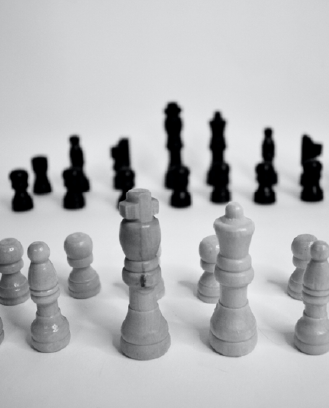[FR] The EU and the Arab-Israeli conflict: an inspiring story

Instead of making themselves look ridiculous on the international stage and weakening the Union with their personal initiatives that contravene the Treaty, the President of the Commission and her Hungarian Commissioner would do better to re-read the history of the Union’s response to the Israeli-Palestinian conflict. In these matters, the Union has been a pioneer, even a leader, and this credibility should perhaps inspire it for future initiatives.
This history unfolds in four stages. It was at the Venice European Council in June 1980 that the nine heads of state at the time recognised that there was no alternative to the coexistence of two peoples, “within secure, recognised and guaranteed borders”. They declared themselves ‘willing to participate, in the context of a comprehensive settlement, in a system of concrete and binding international guarantees, including on the ground’. They were the first Western leaders to take such a clear position. A decade later, in 1991, the EU applauded and supported the signing of the Oslo Accords: the handshake between Itzhak Rabin and Yasser Arafat, in the presence of Bill Clinton, was indeed historic. Once negotiations began between Israel and the PLO, the Europeans had no other policy than to support the efforts of the United States: the political process and Israel’s security were left to them, while Europe provided humanitarian and development aid to the Palestinians. Even today, the EU is the leading financial backer of the Palestinians (€1.2 billion over three years, from 2019 to 2022), the leading donor of humanitarian aid (it has just decided to triple its aid to Gaza) and Israel’s leading trading partner, with which we have had an effective free trade agreement since 2000.
The third stage took place in 2003, when the United States attacked Iraq. The Europeans, led by Javier Solana, then High Representative for the EU’s Common Foreign and Security Policy, certainly disagreed on this American offensive, but they agreed to remind the United States that terrorism was not the only issue affecting international security: the European Security Strategy, published in December 2003, stated that ‘the resolution of the Israeli-Arab conflict is a strategic priority for Europe’. The EU even decided to get involved on the ground. As part of the security and defence policy it was beginning to implement, in 2005 it decided to set up a police operation in Rafah, EUBAM Rafah, to help control the border between Gaza and Egypt. This operation was suspended for reasons related to developments in the conflict on the ground, but its mandate remains valid in 2023 (and is extended annually). On the diplomatic front, in 2002, the EU became a member of the Quartet, a forum for discussions between the US, Russia, the UN and the EU, in other words the highest international authority on the Israeli-Arab conflict, thanks to Javier Solana and his special envoy, Miguel Moratinos, who succeeded in gaining recognition for the Union as an indispensable player in the region.
Why not draw inspiration from this experience and the EU’s diplomatic commitment to a diplomatic solution to the conflict?
It is obviously too early, in the heat of the current turmoil, to venture any scenarios for strategic restructuring in the Middle East. The only certainty is that Hamas, as a terrorist organisation, must be excluded from any future and any negotiations. For the rest, the EU has a historic responsibility to help find acceptable solutions. Could we not take inspiration from the former Quartet to rethink an international conference, but with a Quartet adapted to the reality of the world in 2023: without Russia because of Ukraine, but with the US and some of the powers of the South – Brazil, Nigeria, India or even China? Twenty years on, where has the diplomatic intelligence and creativity of the Europeans gone? Not so long ago, in 2005, we succeeded in finding a multilateral framework for negotiations to contain nuclear proliferation in Iran. We had convinced the five permanent members of the Security Council of its relevance, and for 10 years they recognised the EU as their collective representative. That is no small feat!
Why should such intelligence be impossible today? It is true that American diplomacy is currently at its best. But instead of leaving the United States to fend for itself and then complaining afterwards, what if, for once, and in order to honour our ongoing commitment to a peaceful solution to this conflict, we decided to get involved too? Such European involvement would also have the merit of showing that strategic autonomy is not just a matter of ammunition, defence and the arms industry. It is first and foremost the collective promotion of a vision of a world where justice and law prevail over hatred and force. Europe must step out of its comfortable position of powerlessness and help, if possible, to find a solution to this appalling crisis, using its own ingenuity, including alongside the United States.




